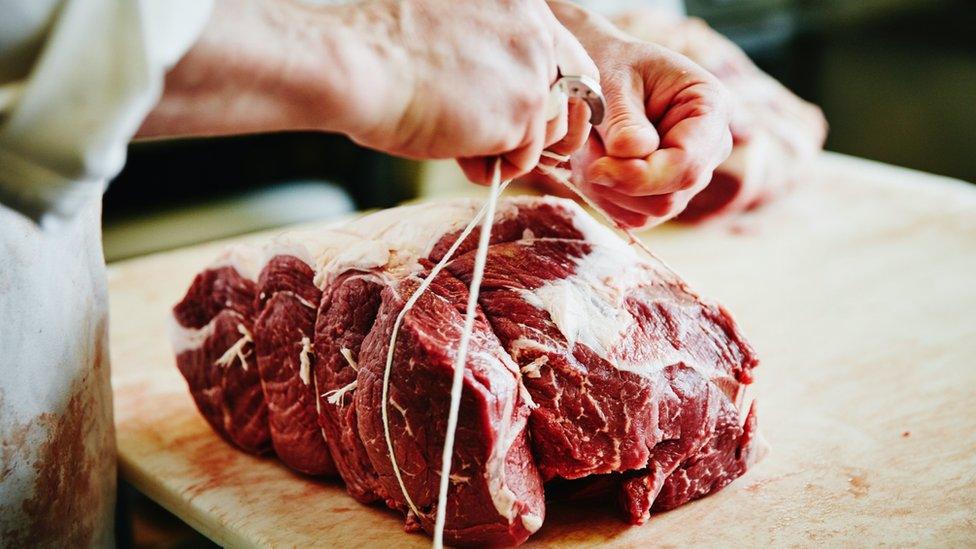CO2: Food and drink fears for Wales over carbon dioxide cuts
- Published
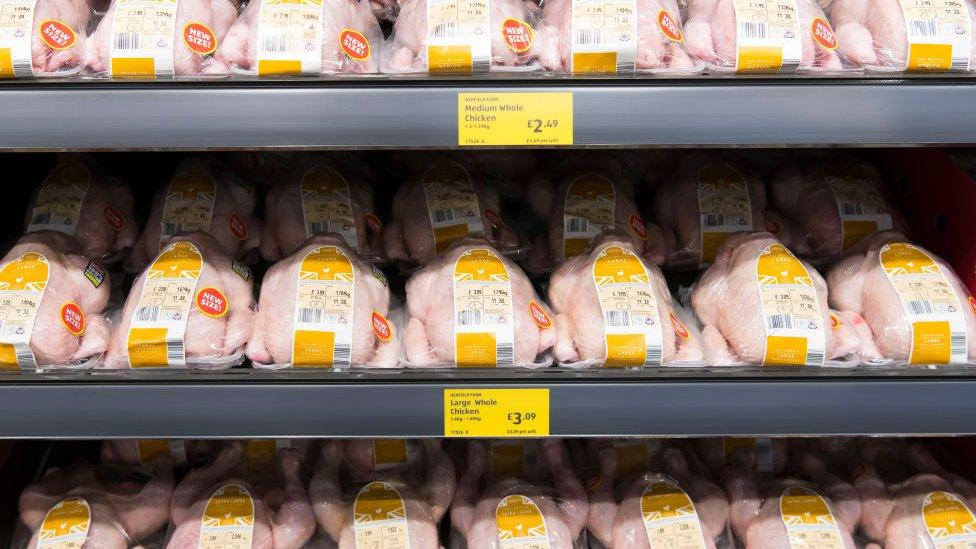
There could be an "availability issue" if production is cut, says one food processor
One of Britain's largest chicken processors says it will have to cut production unless two UK carbon dioxide plants restart.
Last week, CF Industries, the UK's biggest CO2 producer, stopped production in Teesside and Cheshire due to "high natural gas prices".
Food giant 2 Sisters processes about a million chickens each week at its plant in Flintshire in north Wales.
It warned production across its nine UK sites could fall by 10% within days.
"You'd see an availability issue within a week," said 2 Sisters Food Group founder and president Ranjit Singh Boparan.
"We've got four to five days left, then we'll have to reduce our production by 10% - over half a million chickens a week.
"The knock on effect for farmers is horrific - some farmers won't survive."
The CO2 gas is used to stun chickens prior to slaughtering, and also in the packaging process.
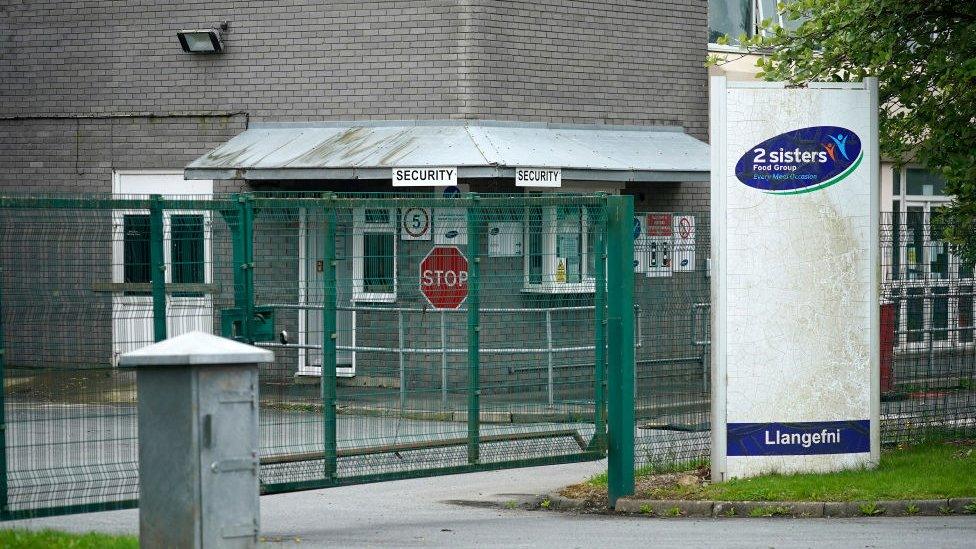
2 Sisters' Anglesey plant is the only one in the UK to process whole large chickens
In addition to its largest poultry processing plant at Sandycroft on Deeside, 2 Sisters also operates the only UK factory to handle large whole chickens at its site at Llangefni on Anglesey.
The food company has seven more poultry-processing plants dotted around the UK, and its president also took over the Bernard Matthews turkey business in 2016.
Mr Boparan told the BBC the food production sector was already facing challenges with workforces and labour supply.
"This is another issue that could have been avoided," said.
"We have to get these two plants up and running, save Christmas and save the food supply chain."
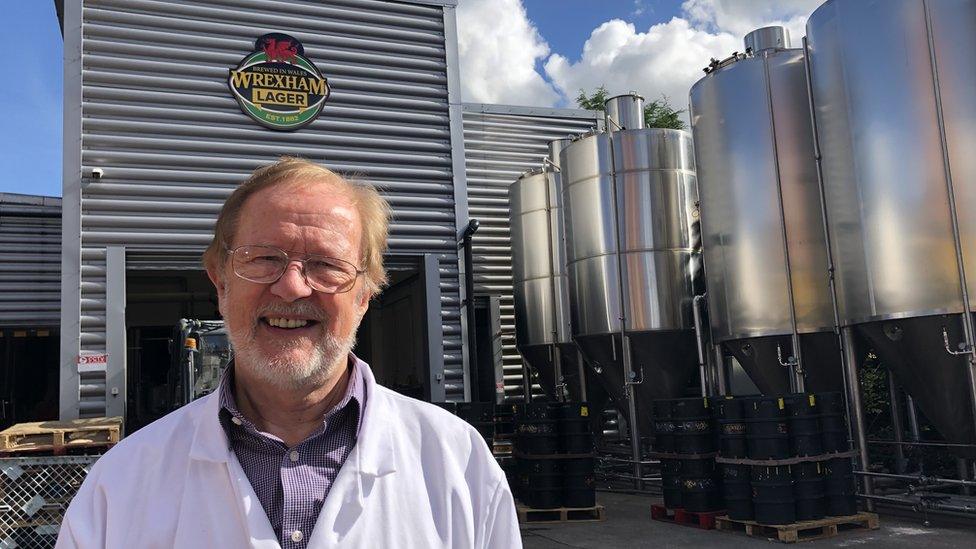
Fears for beers: No CO2 poses a challenge for brewers such as Wrexham Lager's Martyn Jones
It is not just poultry production where there are concerns.
Carbon dioxide gas is used in carbonated drinks and beers.
Martyn Jones, president of Wrexham Lager Brewing Company, said they will be struggling if the CO2 situation continues.
The brewer said a delivery due on Monday was already two weeks late from their supplier.
"Now they're promising a delivery today, but we know it's not going to be as much as we need, because they're trying to supply everyone," said Mr Jones.
Mr Jones, the former Labour MP for Clwyd South, said they had enough gas to last a week, and then they will have to stop filling beer kegs.
"If we don't have it, we're going to be in real trouble," he said.
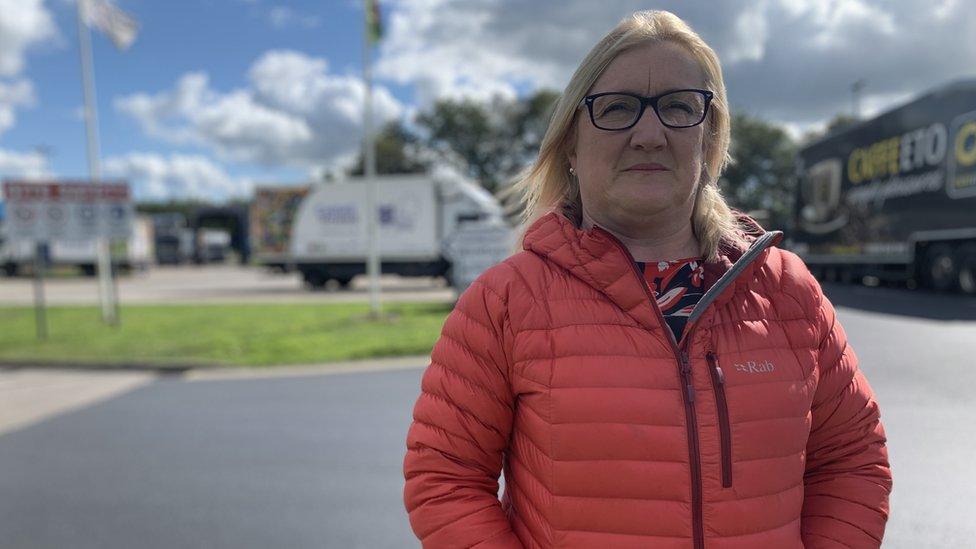
Kathryn Jones from Castell Howell food wholesaler said they were waiting to hear about CO2 supplies
In Carmarthenshire, food service wholesaler Castell Howell said it has been guaranteed a three-week supply of CO2 gas - but is waiting to hear what will happen afterwards.
"In our processing plant we do use CO2 for packing cooked hams on a daily basis, that go out to wholesale and retail markets," said director Kathryn Jones.
She said they expected to learn on Thursday how much more gas they can expect.
"The government has had a lot of time to deal with this. This issue has built up in the background."
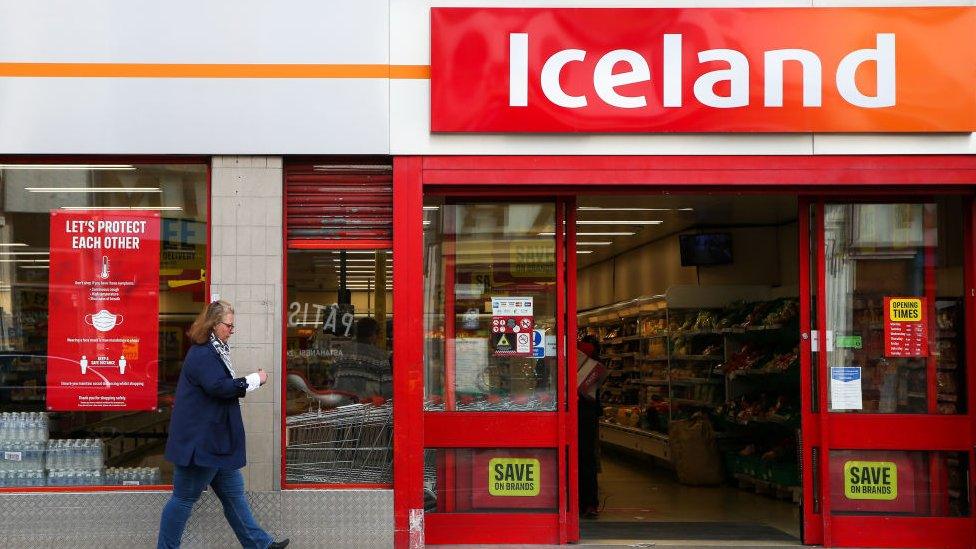
Supermarket chain Iceland said it was bolstering stocks - but was not overly concerned
Richard Walker, the managing director of Welsh-based supermarket chain Iceland Foods, said his company was already building up food stocks for its stores.
"We're in hourly and daily contact with some of our biggest suppliers, and none of them have any issues at the moment, but some of them are very concerned," he said.
But he stressed: "Our supply lines are very robust, and actually, we are building up extra stock in anticipation of this potentially becoming an issue.
"So, it doesn't affect us perhaps as much as it does other competitors."
But Mr Walker said, taken together with ongoing problems with a shortage of HGV drivers across the industry, action was needed.
"I think the government absolutely needs to prioritise CO2 supplies and financing for food production to limit the disruption to supermarket supplies," he said.
"It's absolutely essential that this gets sorted as quickly as possible."
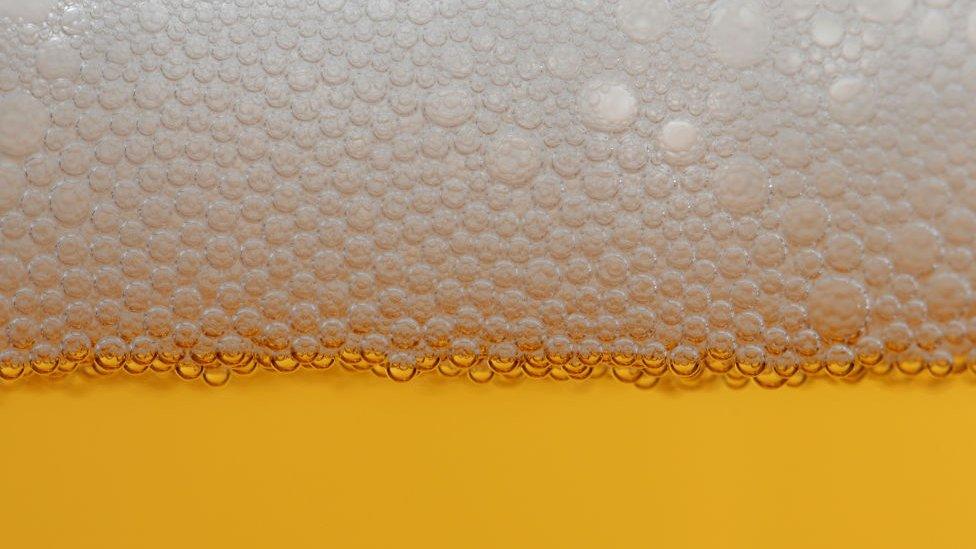
From fizzy drinks to packaging processes - CO2 plays a major role in the food industry
CF Industries provides 60% of the UK's carbon dioxide, which is a by-product of the fertiliser industry.
Its chief executive has held crisis talks with UK ministers, but said it did not "have an estimate for when production will resume".
The BBC has also been told that officials from the Department for Business, Energy and Industrial Strategy have been "working with" the company in recent days.
Business Secretary Kwasi Kwarteng tweeted, external that he had met Tony Will, the chief executive of CF Industries, and "discussed the pressures the business is facing and explored possible ways forward to secure vital supplies, including to our food and energy industries".
The shortage of CO2 could have " deep and wide ranging impacts on food and drink businesses in Wales", said the Welsh Food and Drink Industry Board.
Its chairman Andy Richardson added: "It's far deeper than just asking if turkeys or beer will be available this Christmas. All food and drink manufacturers could be affected significantly."

CAN MUSHROOMS SAVE THE WORLD?: What makes mushrooms so magical?
THE LONG WALK HOME: 20,000 miles, 4 years, 1 man

- Published19 September 2021
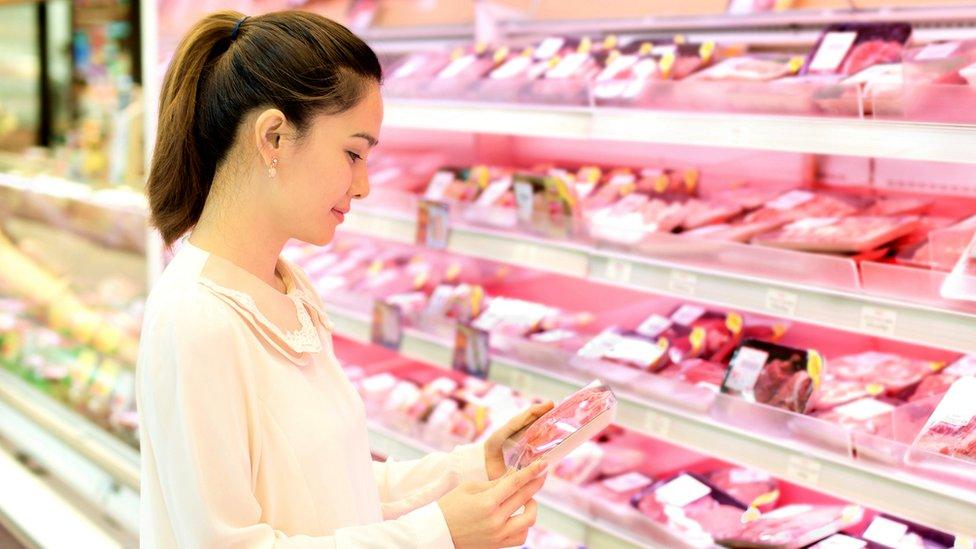
- Published17 September 2021
